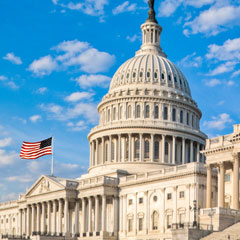Bill that Provides More PPP Flexibility Is Signed into Law
June 22, 2020 | Business Plans
 In the wake of COVID-19, Congress acted quickly to help mitigate the economic impact of the pandemic. Part of this action included the Paycheck Protection Program (PPP), which was designed to help small businesses sustain operations and keep workers employed.
In the wake of COVID-19, Congress acted quickly to help mitigate the economic impact of the pandemic. Part of this action included the Paycheck Protection Program (PPP), which was designed to help small businesses sustain operations and keep workers employed.
While the program had good intentions and bipartisan support, the speed at which the legislation was passed created some unintended consequences. Many businesses in Maine and across the country voiced frustration about the quick timelines in which they needed to use the funds and limitations on what they could use the loan for.
Recently, Congress responded to these complaints by passing the Paycheck Protection Program (PPP) Flexibility Act of 2020, which President Trump signed on June 5. This update to the PPP provides more flexibility for participants in the loan program and allows participants to defer the payment of certain payroll taxes that the Coronavirus Aid, Relief and Economic Security (CARES) Act prevented them from deferring.
The new law also addresses many of the complaints business owners had with the original program. These changes include:
- Allowing businesses 24 weeks instead of eight weeks to use the loan money.
- Modifying the restrictions limiting non-payroll expenses from 25% to 40% of loan proceeds.
- Requiring loan recipients to comply with COVID-19 safety standards.
- Changing loan terms to give borrowers five years to repay, rather than two years.
- Extending the rehiring deadline.
If you have questions about the PPP in your situation, contact us at Filler & Associates.
